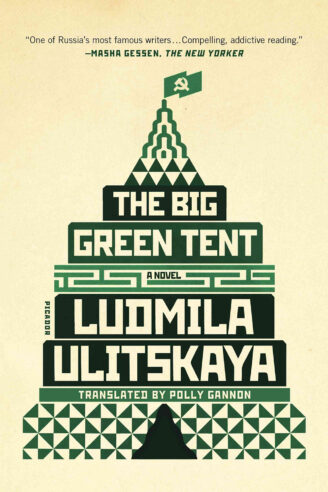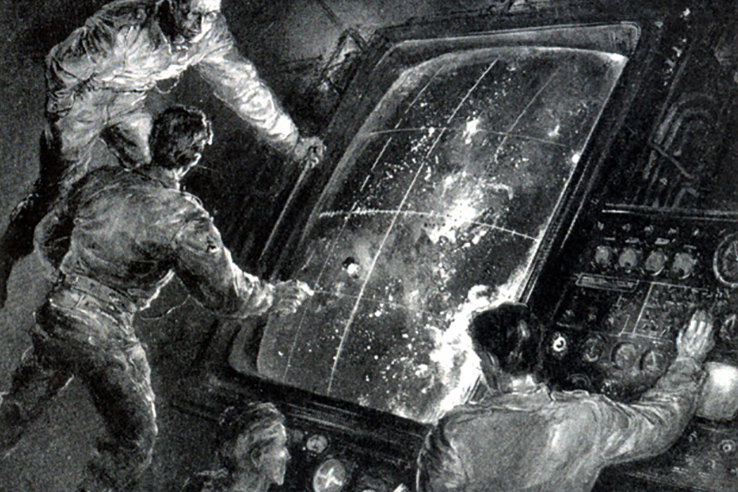The Big Green Tent by Ludmila Ulitskaya (author of Just the Plague, reviewed here) is a big book with many things in it. For this heft, it can be somewhat hard to describe with the pithiness required of a review. It is, without question, an epic novel, spanning decades of history and a great many characters to keep track of. It is, in any case, a book I enjoyed very much.
The book starts with the death of Joseph Stalin overheard on the radio, and from there follows, in the first 100 pages or so, the exploits of three schoolboys in the 1950s. You see them grow and flourish as people, gaining friendships and mentors and lovers. Ulitskaya then starts to follow many other characters related to the three boys. The tree of the story becomes massive, but it keeps those three stern roots at the bottom.
The end result is Michinerian in scope — almost. It’s only a few decades of time, rather than centuries, but the effect is similar.
There are comparisons to be drawn to another Russian novel I have reviewed here: Vladimir Voinovich’s Monumental Propaganda. Both are set in the Soviet Union. Both span decades. Both are written by Russian dissidents. (Ulitskaya has condemned the war in Ukraine. Voinovich died in 2018, but he was rabidly anti-government.)
What is different is the tone. There is a wry satire to Voinovich’s novel. Ulitskaya’s is very sincere. Her characters are odd, but they feel honest in intention if not in action. Voinovich’s characters all come off as neurotic in one way or another.
Ulitskaya brings the Soviet Union, mostly in Moscow but with some diversions elsewhere, to vivid life. You meet all kinds of people, from the intelligentsia, including a teacher of Russian literature, to farmers. Inevitably, there are run-ins with the security state. We think of life behind the Iron Curtain as squalid and grey, but those watched by the cameras and the guards were still people, and Ulitskaya shows that well.
The book can be surprisingly and raucously funny. There is gallows humor, but also purely human comedy. In particular, there is a wonderful bit set in Tashkent, which I won’t spoil by going into detail.
The Big Green Tent feels like so much of Russian literature rolled into a novel of almost 600 pages. It is that country’s traditions used at their best; not to justify slaughter, but to probe the human condition. It enthralled me, and I’m sure it will enthrall you.






1 Comment
Add YoursI wish someone would do a history of Buran or AN-225